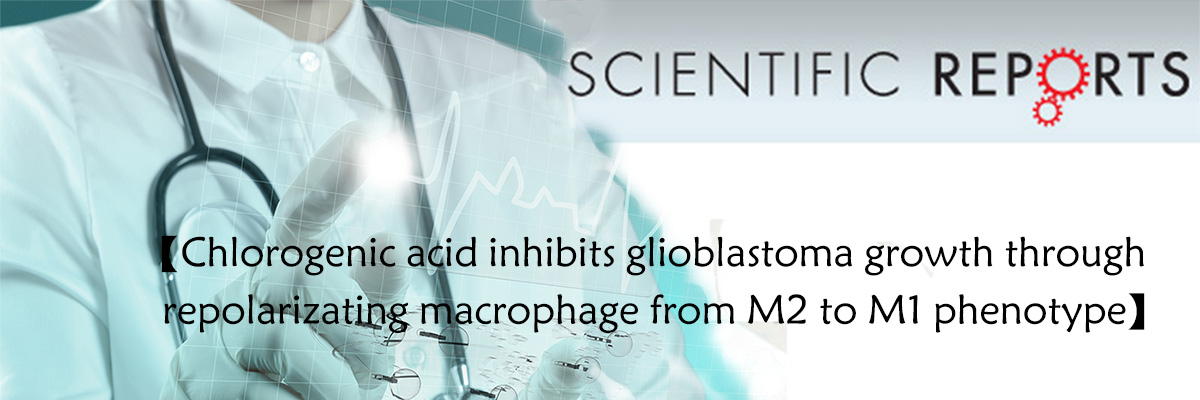Abstract
Glioblastoma is an aggressive tumor that is associated with distinctive infiltrating microglia/macrophages populations. Previous studies demonstrated that chlorogenic acid (5-caffeoylquinic acid, CHA), a phenolic compound with low molecular weight, has an anti-tumor effect in multiple malignant tumors. In the present study, we focused on the macrophage polarization to investigate the molecular mechanisms behind the anti-glioma response of CHA in vitro and in vivo. We found that CHA treatment increased the expression of M1 markers induced by LPS/IFNγ, including iNOS, MHC II (I-A/I-E subregions) and CD11c, and reduced the expression of M2 markers Arg and CD206 induced by IL-4, resulting in promoting the production of apoptotic-like cancer cells and inhibiting the growth of tumor cells by co-culture experiments. The activations of STAT1 and STAT6, which are two crucial signaling events in M1 and M2-polarization, were significantly promoted and suppressed by CHA in macrophages, respectively. Furthermore, In G422 xenograft mice, CHA increased the proportion of CD11c-positive M1 macrophages and decreased the distribution of CD206-positive M2 macrophages in tumor tissue, consistent with the reduction of tumor weight observed in CHA-treated mice. Overall these findings indicated CHA as a potential therapeutic approach to reduce glioma growth through promoting M1-polarized macrophage and inhibiting M2 phenotypic macrophage.





